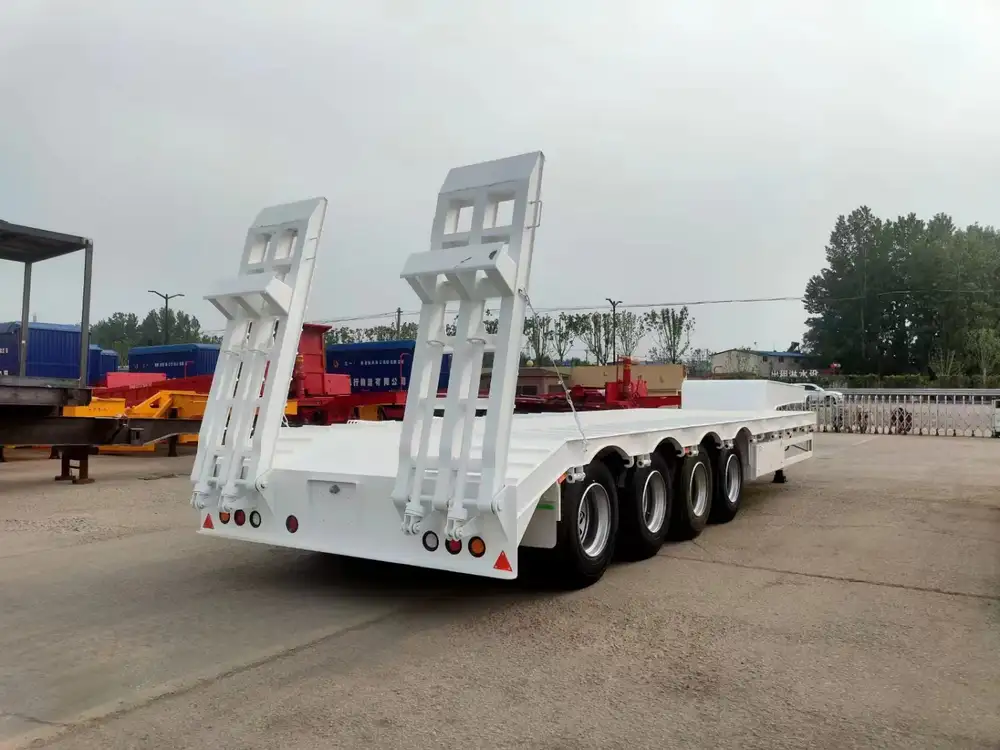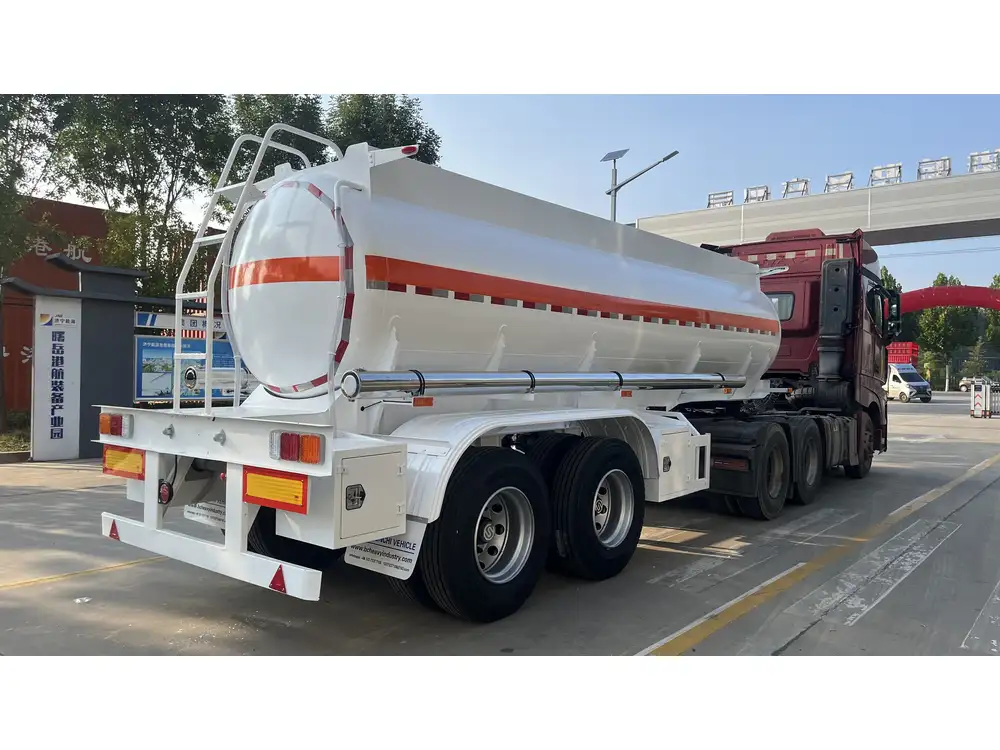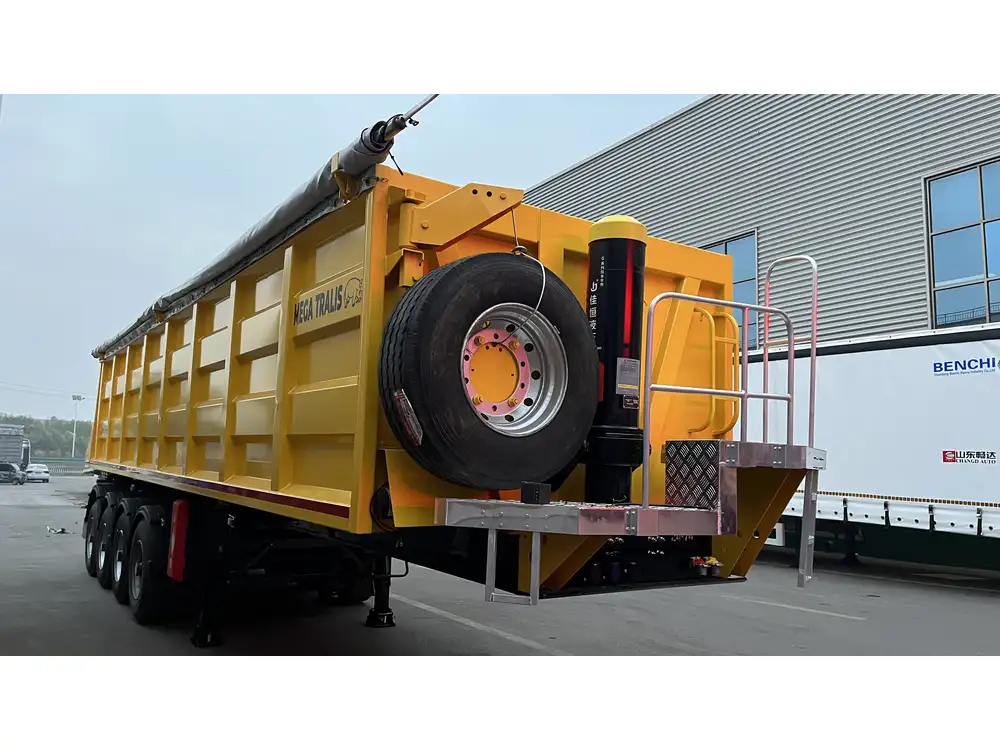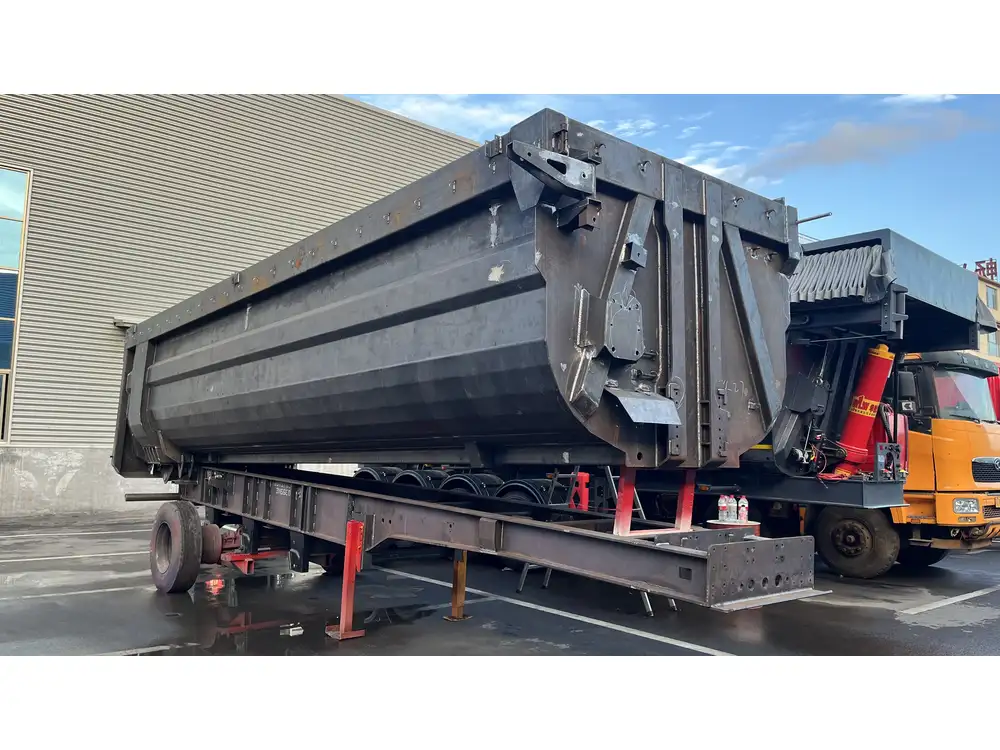In the world of heavy hauling and transportation, understanding the intricacies of vehicle capabilities and configurations becomes paramount. For many truck drivers, logistics companies, and fleet owners alike, the question arises: Can a regular truck pull a semi-trailer? This inquiry delves into the specifications, regulations, and practical applications of towing semi-trailers with your standard truck. Below, we dissect this complex topic to unravel the nuances involved.
Understanding Truck Classifications
Before we can address whether a regular truck can pull a semi-trailer, we must first clarify what we mean by “regular truck” and “semi-trailer.”
Truck Classifications
| Classification | Definition | Common Examples |
|---|---|---|
| Light-Duty | Trucks with a gross vehicle weight rating (GVWR) of up to 8,500 lbs | Ford F-150, Chevrolet Silverado 1500 |
| Medium-Duty | Trucks with a GVWR between 8,501 lbs and 26,000 lbs | Ford F-250, Ram 2500 |
| Heavy-Duty | Trucks with a GVWR exceeding 26,000 lbs | Freightliner Cascadia, Kenworth T680 |

Semi-Trailer Specifications
A semi-trailer, designed specifically to carry freight, is characterized by its lack of front wheels, relying instead on a tractor unit for mobility. Typically, these trailers are equipped with:
- Length: Ranges from 28 feet to 53 feet based on federal regulations.
- Weight Capacity: Can carry loads ranging from 20,000 lbs to 40,000 lbs or more, depending on the specific trailer type and configuration.
- Axles: Generally feature tandem axles (two axles) but can also have tri-axle configurations for heavier loads.
Minimum Requirements for Towing a Semi-Trailer
To effectively pull a semi-trailer, a truck must meet certain criteria, otherwise known as towing capabilities. Understanding these aspects will clarify whether a ‘regular truck’ can perform this task.
Engine Power and Torque
Horsepower and torque ratings are crucial when assessing towing capabilities. Torque contributes significantly to a truck’s ability to move heavy loads from a standstill, while horsepower is vital for maintaining speed against resistance.
- Minimum Requirement: A truck needs a torque rating of at least 400 ft-lbs, accompanied by sufficient horsepower (generally at least 300 hp) to effectively manage the additional weight of a semi-trailer.

Towing Capacity
The towing capacity is the primary factor determining whether a truck can pull a semi-trailer. This refers to the maximum weight a vehicle can safely tow, accounting for its own weight and loading specifications:
- Light-Duty Trucks: Typically cannot tow semi-trailers due to lower towing capacities (usually maxing out around 10,000-12,000 lbs).
- Medium-Duty Trucks: Can offer towing capacities up to approximately 18,000 lbs but generally still fall short of semi-trailer requirements.
- Heavy-Duty Trucks: The ideal choice for pulling semi-trailers, with towing capabilities ranging anywhere from 20,000 lbs to over 40,000 lbs, contingent upon the model and configuration.
Hitch and Coupling Setup
Another critical aspect is the hitch system. Pulling a semi-trailer requires special hitching mechanisms tailored to handle significant weight:
- Fifth-Wheel Hitch: Predominantly used for semi-trailers, this setup allows for better weight distribution.
- Adjustable Coupling Equipment: Ensures compatibility between the truck and semi-trailer, maintaining a secure connection.
Legalities and Regulations: A Must-Consider
Engaging in semi-trailer towing involves navigating an extensive landscape of legal regulations that differ by jurisdiction. Here are key regulations that may affect towing capabilities:

Licensing Requirements
- Commercial Driver’s License (CDL): Generally, a CDL is required for any vehicle combination that exceeds 26,001 lbs in total weight. This applies to configurations that include a semi-trailer.
- Endorsements: Certain states may require additional endorsements for heavy-duty towing.
Weight Limits
Each state imposes stringent limits on the maximum weight that can be transported. This means a truck must comply with local regulations to avoid fines.
Safety Standards
Federal Motor Carrier Safety Administration (FMCSA) guidelines dictate various safety measures, including:
- Braking Systems: Trucks must be equipped with adequate braking systems for both the truck and trailer.
- Lighting and Visibility: Proper lighting must be installed for safe night-time travel.

Should You Consider Towing a Semi-Trailer with a Regular Truck?
The allure of towing a semi-trailer with a standard truck may be tempting, particularly for small business owners or individuals looking to maximize efficiency. However, it’s crucial to evaluate several factors before proceeding:
Potential Costs and Risks
| Factor | Considerations |
|---|---|
| Damage to Vehicle | Underestimating the towing capacity can lead to serious mechanical issues and damage. |
| Legal Repercussions | Non-compliance with towing regulations can incur hefty fines and legal issues. |
| Insurance Viability | Using a regular truck for semi-trailer towing may affect coverage and claims. |
Alternatives to Consider
Given the limitations of regular trucks, alternative options could be ideal for specific hauling needs:
- Renting Heavy-Duty Trucks: For those infrequent occasions where semi-trailer towing is required.
- Flatbed Trucks: Can be a suitable option for specific loads and are often easier to rent or lease.

Addressing Common Misconceptions
When it comes to towing semi-trailers, several misconceptions permeate the discussion. Addressing these beliefs is vital:
“Just Any Truck Can Tow a Trailer”
Reality
Not all trucks can handle the weight requirements of a semi-trailer. Heavy-duty trucks designed explicitly for these tasks are paramount.

“Weight Distribution Has No Effect”
Reality
Uneven weight distribution can lead to highly dangerous situations, resulting in loss of control or brake failure. Always consider specialized configurations.
“More Power Equals Better Towing Capacity”

Reality
While engine power plays a role, factors such as truck setup, axle configurations, and weight ratings significantly impact towing efficiency.
Conclusion: Assessing Your Options
Ultimately, while the question “Can a regular truck pull a semi-trailer?” invites intrigue, the answer rests upon a detailed analysis of vehicle specifications, legal requirements, and practical considerations. If you find yourself needing to tow a semi-trailer, prioritize understanding the capabilities and limitations of your vehicle.
Key Takeaways
- Choose the Right Vehicle: Heavy-duty trucks are always the safest option for towing trailers.
- Understand Legal Implications: Always stay informed about local laws and regulations concerning towing.
- Prioritize Safety and Compliance: The right setup and configurations ensure that both your vehicle and load are safe for transport.
For businesses in the transportation arena, the intricacies of towing semi-trailers cannot be overlooked. Equip yourself with knowledge, and always consult professionals if you’re in doubt—ensuring not just compliance but enhancing overall operational efficiency.



